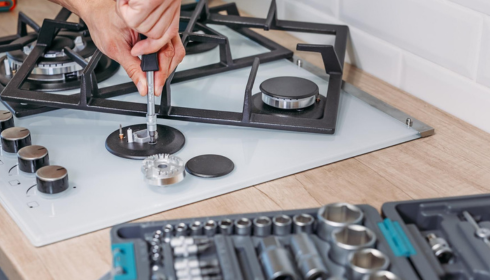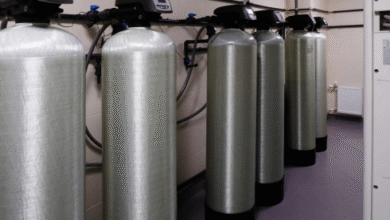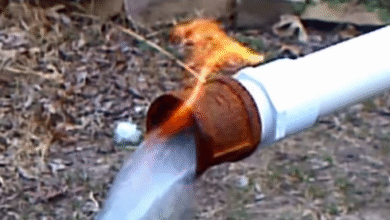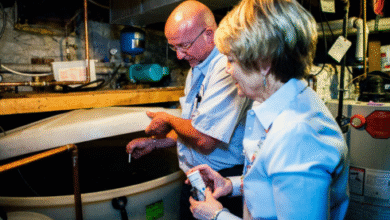When Your Stove Lets You Down: A Real Guide to Getting It Fixed Without the Stress

There’s nothing like the smell of a home-cooked meal wafting through the kitchen. It’s comforting, grounding, and often the highlight of a long day. But that feeling flips on its head the moment your stove decides to quit on you. One evening, you’re searing veggies with ease, and the next, the burners don’t light, or worse—your oven won’t even heat past lukewarm. It’s frustrating, it’s inconvenient, and let’s be honest, it usually happens at the most inconvenient time.
That’s where the importance of finding reliable stove repair near me becomes very real. A good repair technician isn’t just a service provider; they’re a lifeline, saving dinner plans and maybe even your sanity. But before you grab your phone and call the first listing you see online, there are a few things worth knowing that can save you money, time, and unnecessary headaches.
Why Stoves Fail in the First Place
Stoves, whether gas or electric, deal with constant use, high temperatures, and the occasional spill that seeps into the wrong spot. Over time, knobs wear out, heating elements break, or gas lines get clogged. Even simple things like food debris can cause big problems if they block ignition points.
And while some of these issues can be solved with a quick cleaning or by checking a tripped breaker, others aren’t as straightforward. That’s when calling a professional makes sense. Think about it—messing with gas lines or electrical wiring without the proper know-how is risky. The cost of professional repair is always cheaper than the cost of a kitchen fire or an injury.
The Real Cost of DIY vs. Professional Help
It’s tempting to fix things on your own, especially with so many YouTube tutorials promising “five-minute stove fixes.” But here’s the thing: stoves are deceptively complicated. What looks like a faulty burner might actually be a wiring issue. An oven that won’t heat could be a problem with the thermostat, but it could also be the control board, which is far pricier to replace if you accidentally damage it while poking around.
That’s where certified technicians who specialize in electric stove repair step in. They’ve seen hundreds of variations of the same problem. What could take you hours of trial and error often takes them minutes to diagnose. And here’s the kicker: many repairs end up costing less than people assume, especially if the issue is caught early.
How to Choose the Right Stove Repair Service
Not all repair services are created equal. Some arrive late, rush through the job, and leave you second-guessing whether your stove is actually safe to use. Others, thankfully, treat their work like a craft, making sure the job’s done thoroughly.
When you’re searching for a repair company, look for:
- Transparency in pricing: No one likes surprise fees.
- Experience with your stove type: Gas, induction, or electric all require slightly different expertise.
- Customer reviews: A quick scan of Google or Yelp will tell you a lot.
- Warranty on repairs: This is a sign they stand by their work.
This process might take a bit of time, but it’s worth it. After all, your stove isn’t just another appliance—it’s central to your daily routine.
A Reliable Name in the Industry
One service that homeowners often recommend is Appliances Connection stove repair service. They’ve built a reputation for not just showing up, but showing up prepared—tools, parts, and the know-how to handle just about any stove brand or issue. The benefit of going with a service like this is consistency. Instead of rolling the dice with a random technician, you know you’re getting trained professionals who deal with these repairs day in and day out.
This kind of reliability matters. When your stove is down, every extra day without it feels like an eternity of microwaved meals or takeout bills piling up.
When It’s Time to Replace Instead of Repair
Of course, no stove lasts forever. The average lifespan is about 13–15 years, depending on the brand and how often you cook. If you’re constantly calling in repairs, or if the cost of fixing an issue is more than half the price of a new stove, it might be time to say goodbye.
That said, don’t rush into replacing without at least having a professional look first. Sometimes what feels like the end of the road is just a worn-out heating element or a loose connection. Spending $150 on a fix beats dropping a couple grand on a new unit you didn’t actually need.
A Few Tips to Avoid Repairs Altogether
While some breakdowns are inevitable, a little care goes a long way in extending your stove’s life. Here are some small habits that can prevent big problems later:
- Clean spills right away: Food gunk can clog igniters and burners faster than you’d expect.
- Don’t overload the stove: Heavy pots can stress the grates and burners.
- Check power regularly: If you notice flickering lights or your stove tripping breakers, address it early—it might be a wiring issue.
- Schedule maintenance: A once-a-year checkup can keep things running smoothly.
It’s the same logic as regular car maintenance. You don’t wait for the engine to give out before changing the oil, right?
The Takeaway
When your stove stops working, it feels like your whole kitchen is off-limits. And while the internet might tempt you into a quick DIY solution, most stove issues are best left to professionals who know what they’re doing. Whether you’re searching late at night for “help, my burners won’t ignite,” or calling around for local technicians, choosing the right service saves you more than just money—it saves peace of mind.
So next time your kitchen companion falters, remember you’ve got options. From local technicians you can find with a quick search for stove repair near me, to specialized experts who handle complex jobs like electric stove repair, the help you need is out there. And if you prefer a trusted name that many already rely on, Appliances Connection stove repair service is one to keep in mind.
Cooking should be joyful, not stressful. And with the right repair support, you’ll be back to your favorite recipes before you know it.




